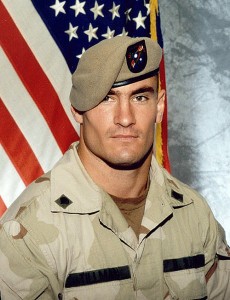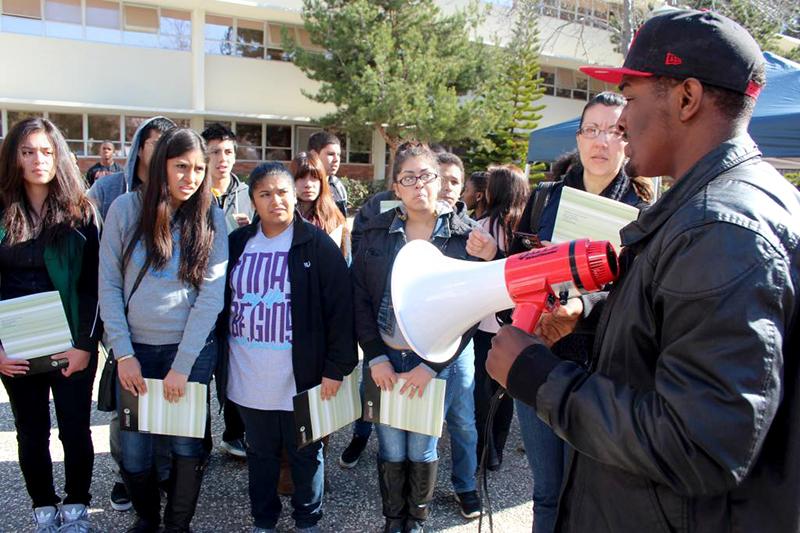 Amir Bar-Lev’s “The Tillman Story” proves to be a definitive account
of a family’s struggle to uncover the truth and redefine the legacy of
a man who never wanted to be a hero.
Amir Bar-Lev’s “The Tillman Story” proves to be a definitive account
of a family’s struggle to uncover the truth and redefine the legacy of
a man who never wanted to be a hero.
The documentary, which is in
limited release, describes the events surrounding the death of NFL
Safety turned U.S. Army Corporal Pat Tillman through the perspective
of his family and those who knew him best.
Tillman, who grew up in suburban San Jose, shocked the nation in May
2002 when he turned down a multimillion-dollar contract with the
Arizona Cardinals to enlist in the military. Although the media
immediately dubbed him as the poster child of post 9/11 patriotism,
Tillman shunned their attention and wanted to be treated just like any
other enlisted man.
Midway through his tour of duty after his
regiment of Army Rangers served in the 2003 invasion of Iraq, he
declined an opportunity to discharge early and resume his NFL career.
Tillman’s decision to honor his three year commitment proved to be
fatal when it was announced that he had been killed on April 22, 2004
in the remote region of Sperah, Afghanistan.
CONTROVERSY
The film focuses on the controversy the U.S. Army faced in efforts to force a retraction of the initial story that Tillman was killed by Taliban forces in an ambush, and to admit that he was killed by fratricide, or “friendly fire” from his own men. Russell Baer and Bryan O’Neal, two Army Rangers who were close to Tillman and were with
him at the time of his death, attest that they were immediately ordered to remain silent. The two men were forced to lie to Tillman’s family, including Pat’s brother Kevin who had enlisted with Pat and was
also a member of his platoon but was not at the scene of his death.
A jarring moment in the film is when O’Neal recounts how Tillman’s last words were as he shouted at his comrades, “I’m f—ing Pat Tillman!” just before they mortally shot him.
Following Tillman’s death, Army General Stanley Allen McChrystal began the proceedings for him to receive the Silver Star, a medal given to
those killed by enemy fire, even though McChrystal and the Army High
Command were allegedly aware of the truth.
The filmmakers also
insinuate that Secretary of Defense Donald Rumsfeld was an architect
of the cover-up and that President George Bush was aware that the Army’s official explanation was untrue.
Tillman’s parents, Patrick
Sr. and Mary or “Dannie” as she is called, became aware of the cover- up only after a document was leaked to the media. The grieving
parents began a remarkable effort to unlock the truth, searching through thousands of pages of censored documents.
SHOCKING MOMENT
One of the most shocking moments of the documentary is when footage of Army staff members who appear to be consoling Tillman’s family following their loss is shown to have actually been a concerted effort to force the family to agree to give Pat a state funeral at Arlington National Cemetery. Before his death, Tillman had specifically smuggled a document to his family, which forbade the government from burying him at Arlington in the event of his death.
This scene highlights the overarching motif that the Tillman family,
in accordance with Pat’s wishes, refuses to allow his legacy to be
exploited.
Following Tillman’s death, the NFL held half time ceremonies retiring his jersey number, and politicians touted his
patriotism at state dinners, forcing the very private family to go
through a very public grieving process.
Pat Tillman should not be
used as the “cookie cutter” prototype of what it means to be a patriot
just as he shouldn’t be used as a symbol for the anti-war left. Tillman’s wife, Marie explains how political factions exploit his
memory for their own benefit by taking, “apart the pieces of who he
was and magnifying them for their purposes.” His mother adds that her
son was used as a “political tool” and his brother Kevin, who has only
spoken publicly once since finishing his tour of duty with the Army, believes the government saw an “opportunity” in his death.
Although Bar-Lev and producer John Battsek have put together a gripping masterpiece which is sure to spark intense discussions over some of the most important issues of our time, one must wonder about their motives in using Michael Moore to promote the film.
If the filmmakers want to truly honor Pat Tillman, they should keep “The Tillman Story” away from both sides of the political isle even if Moore will help them attract a certain demographic.
However, the film does a great job giving viewers the important information so that they can decipher for themselves who Pat Tillman was, and what his story means to America.






